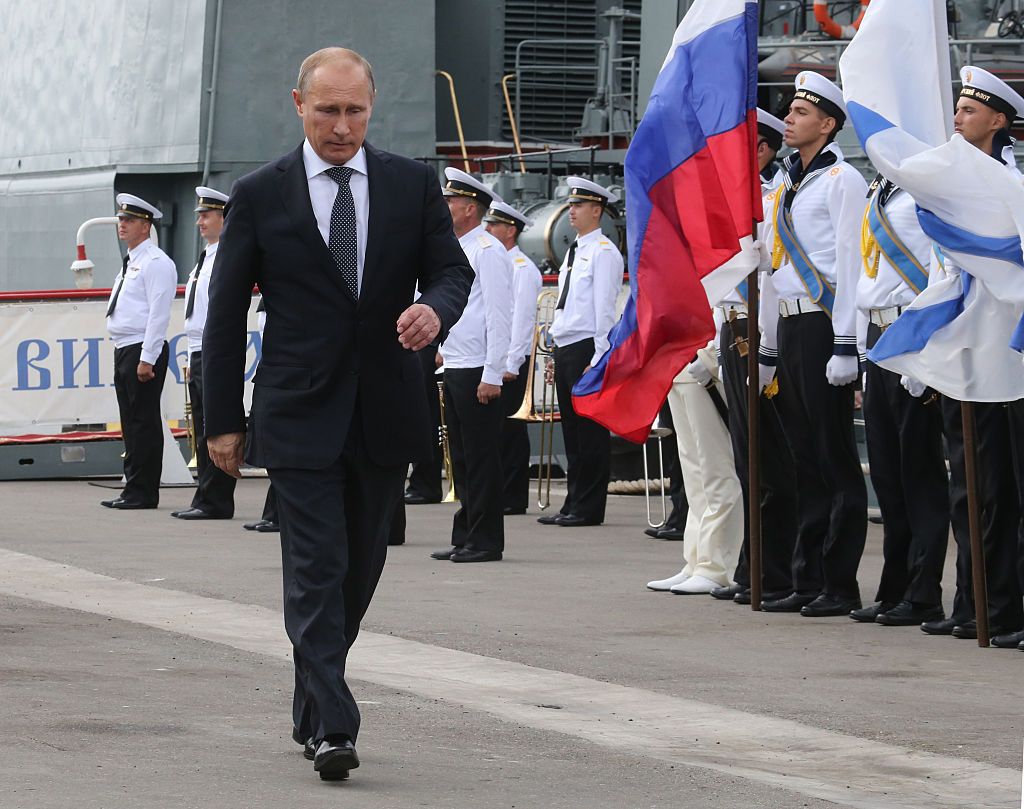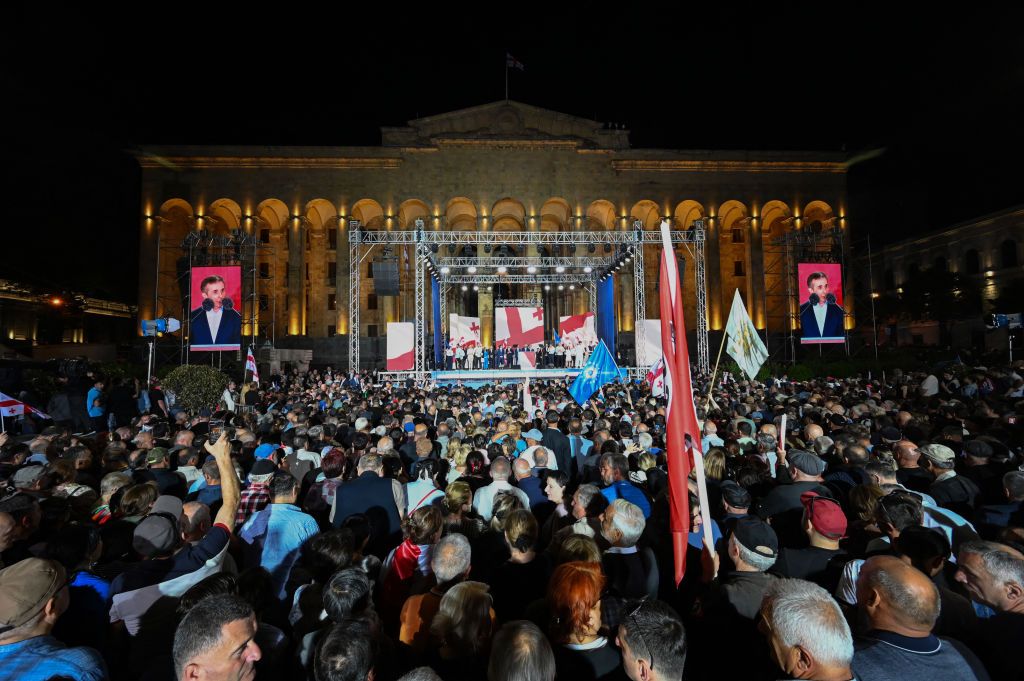Reuters: Georgian police attack protesters with tear gas, water cannons

Georgian police on April 30 attacked protesters with tear gas and water cannons outside the parliament building in Tbilisi, where demonstrators gathered to protest the government's controversial "foreign agents" law, Reuters reported.
The bill, which must be passed in three readings before it becomes law, would require organizations that receive foreign funding to be labeled as "foreign agents." The law mirrors repressive Russian laws used to crack down on Kremlin regime critics.
Reuters witnesses reported that some officers physically attacked protesters, throwing eggs and bottles at them before dispersing the crowd forcibly with tear gas and water cannons.
Riot police also reportedly targeted demonstrators with pepper spray and batons as protesters tried to block legislators from leaving the parliament's back entrance. Protesters called the police "Russians" and "slaves" in their chants.
The foreign agents bill was first introduced in 2023 by Prime Minister Irakli Kobakhidze's ruling Georgian Dream party, but was abandoned after it sparked mass demonstrations.
The Georgian Dream party recently reintroduced the legislation in parliament, renaming it a bill on the "transparency of foreign influence" but keeping the intent of the previous law essentially identical.
The bill is widely known in Georgia as the "Russian law" for its resemblance to similar legislation passed in Russia. If passed, the law would permit authorities to more strictly monitor communications, including internal discussions, by any organizations that receive foreign funding.
The European Parliament passed a resolution condemning the foreign agents law on April 25.
Crowds of anti-government protesters have convened in central Tbilisi on a regular basis since April 17, when parliament approved the bill's first reading. The government on April 29 staged its own anti-Western rally, bussing in tens of thousands of people from around the country to support the government's authoritarian turn.
Tina Khidasheli, former Georgian defense minister, joined the protestors on April 30.
"The government is just prolonging the inevitable. We might have serious problems, but at the end of the day, the people will go home with victory," she told Reuters.















